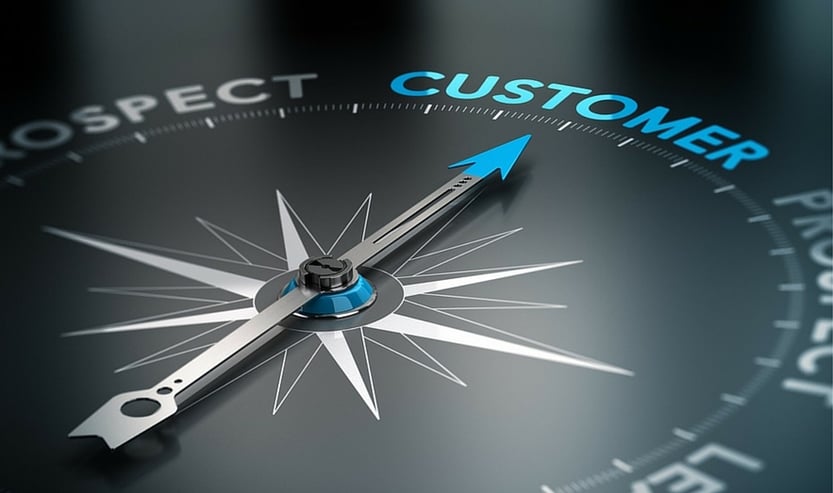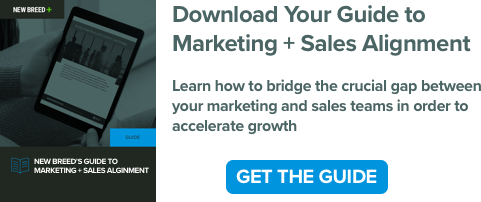Improve the Quality of Your MQLs with Predictive Lead Scoring

Lead scoring is an integral part of modern lead management and a worthy addition to your inbound marketing strategy. At its core, lead scoring is the process of attaching values to your leads individually based on their professional information and the behavior they have exhibited on your website.
Contrary to how lead scoring may look on paper, you're not giving all of your attention to one group of leads while brushing off the rest. Instead lead scoring is a way to help your marketing and sales teams determine which leads are sales-ready. In a perfect world, marketing and sales would agree on every numerical score you give your leads, but that's not reality. To fill in the blanks, meet predictive lead scoring, a more informed way to score your leads.
The Difference Between Traditional and Predictive Lead Scoring
Traditional lead scoring allows you to assign a manualy defined point value to a contact based on both the explicit information they've provided by filling out forms on your website, and also the implicit information you've collected from your website and marketing automation analytics. Predictive lead scoring is similar, except that instead of looking at the manually created model, an algorythm runs a regression analysis across your database to determine the most accurate possible lead scoring model and assigns the appropriate amount of points based on this historical information.
Predictive lead scoring and why it matters for your business
What do the subscription-based services Pandora and Netflix have in common? The two brands know exactly what to deliver to the subscriber—or free-trial user—based on the user's song, artist, television or movie selection. Netflix, for example "leverages analytics to identify correlations between the movies and shows that users watch," writes the staff at HubSpot. "This process takes into account things such as genre, rating, and length to deliver the best suited option—just for you." The Netflix and Pandora experience is actually quite similar to predictive lead scoring.
The staff at HubSpot continues: "When a lead enters your database, your software will use predictive analytics to compare the contact's properties (company name, industry, size, etc.) against those of existing contacts (both won and lost) to determine the best fit." For those of you executing inbound marketing tactics, you know how important it is to reach the right person at the right time. With predictive lead scoring, your marketing team can do just that by prioritizing your leads for your sales team. The results are higher-quality leads and a more unified team.
If you're already using traditional scoring and considering reaping the benefits of predictive scoring, it doesn't mean your traditional scores have to go waste. Traditional scoring has already touched on your lead's interest level. With predictive scoring you can enhance your demand-generation funnel by determining which of those leads are most ideal for your business and the products and services you offer.
How to use predictive lead scoring to unify marketing and sales
If you're a frequent reader of our blog then you may remember one of our previous articles where our marketing manager, Matthew Buckley, noted: "By opening up a discussion between your marketing and sales teams, you can set parameters that will enable marketers to score their leads and segment them throughout their lifecycle. This could be something like 'lead, MQL, SQL,' or 'warm/cold/hot,' or even by a numeric value. This way only the most qualified leads are handed off to the sales team and the marketing team can continue to nurture the leads that are not yet sales ready based on your lead scoring system."
Take this method one step further with predictive lead scoring. With a data-driven approach to lead scoring, both marketing and sales can remove any assumptions they may have about your leads and use real behavior to focus on nurturing the right business opportunities further down your funnel. And just like that, you can start generating real business results by matching the right sales rep to the right opportunity and identifying the most effective engagement strategies for each and every one of your opportunities.




